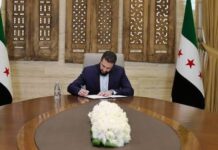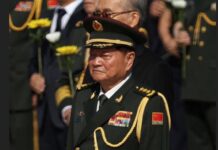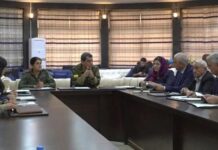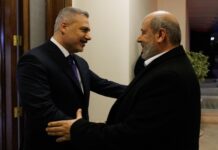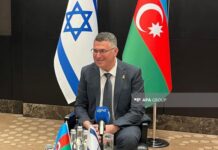Günay Aslan
gunayaslan@hotmail.de
The Turkish original of this article was published as 'Kördüğüm ve Öcalan' on 1st July 2015.
As the YPG cleared Gre Spi (Tel Abyad) of IS, the Islamic media came to be flooded with conspiracy theories of a mind-boggling sort.
While claiming to be adherents and advocates of the Islamic umma, some authors were unable to refrain from taking the Turkish nationalism that had actually penetrated their souls a notch further into outright racism.
The primordial poison of nationalism lurking deep below rose to the surface for all to see.
What a sad picture for all humanity and for Islam!
Kurdophobia, expressed through a virulent hatred of the PKK, appears to have paralyzed the mental faculties of the Islamic media.
In the past, however, it was through Öcalan’s 2013 Newroz appeal that the peace talks being held with the PKK since Oslo had entered a new phase, laying the foundations of a Turkish-Kurdish alliance capable of shaping the centuries before us.
(Those who were applauding Öcalan’s appeal at the time, and enthusiastically saluting the prospect of a Turkish-Kurdish alliance, are now raising anti-Kurdish war-cries.)
More recently, Öcalan took the opportunity provided by Newroz 2015 to repeat his previous words:
“… I hereby salute the Kobani resistance and victory, which is of major significance both for our region and the international world. I also salute the ‘Eşme spirit’ that has sprouted therefrom as emblematic of a new history for our peoples. Everything that I have noted above may be summed up in a single precious sentence calling for a society-wide revision, restoration, and reconstruction of our past and present…”
This was what the PKK leader said while also praising the “Eşme spirit,” only to be promptly repudiated by the General Staff.
This was what the top brass of the Turkish army had to say:
“… Some media channels having given voice to reports or news items, in line with the ‘EŞME SPIRIT’ statement of the chief terrorist, whom we have never taken and shall never take as our interlocutor, that the relocation of the Süleyman Şah Commemorative Outpost within SYRIAN territory took place through ‘cooperation between the TSK and the PYD/PKK,’ [we would like to state that] such allegations are wholly false; the Turkish Armed Forces being a proud, dignified and right honorable National Army that has been locked in armed combat for thirty-one years with a terrorist organization striving to overthrow the Constitutional régime of the Turkish Republican State, and which has thereby suffered thousands of şehid and gazi casualties, we strongly condemn the individuals and press organs responsible for such allegations in the presence of the Great Turkish Nation…”
The government remained silent in the face of this declaration by the General Staff. Nevertheless, the Solution Process continued, and even registered a major step forward through the Dolmabahçe Agreement.
But at the same time, it was precisely at this point — as the end seemed to be drawing closer — that the struggle between rival wings inside the state became sharper.
The Army, seeing a prospective Turkish-Kurdish peace as nothing more or less than the liquidation of the PKK, had drawn President Erdoğan over to its side and through him had caused the negotiation table to be kicked over.
And the Process had been cut short for the moment.
As a leading actor in the Solution Process, Hakan Fidan’s decision to leave the MİT [National Intelligence Organization] in order to run for parliament was, at bottom, also a consequence of this deep rift within the state.
Entering his candidacy despite Erdoğan’s opposition, Fidan had returned to the MİT as a result of further pressure from the president and the failure of Ahmet Davutoğlu to persist in backing him.
The provisional winner was the Army line to which Erdoğan had capitulated, but this did not mean that the internal struggle was over, and that the Army had won final victory.
As demonstrated by the course of subsequent events, the struggle between two lines has been continuing ever since, assuming harsh forms to this day.
This ruthless, merciless, “the end justifies all means and methods” kind of struggle has repeatedly left its imprint on Lice,Bingöl, Ağrı, Eruhh, Diyarbakır, Mersin and Adana, and also Kobani.
The rift in question has also been very much in evidence in relations between Turkey and the US, Turkey and the EU, Turkey and the Middle East, Turkey and Russia, and Turkey and Cyprus.
While the putschist forces comprising the Parallel State [i.e. the Gülen Congregation – tr. note] and the [ulusalcı] left-nationalists, virtually asking for Erdoğan’s head through the 17-25 December initiative, may have pushed Erdoğan to move closer to the Army, it is becoming clear that this skid or slip was only temporary.
It does not seem possible for Erdoğan, as for Turkey, to turn back from his chosen path.
Objectively speaking, circumstances leave Erdoğan, as well as Turkey, with no future other than to persist in the road taken.
Meanwhile, we should also admit that the Kurdish movement apart from Öcalan has also played a part in Erdoğan’s sudden skid.
The Kurdish political movement cannot help but see that despite his dozens of mistakes, Erdoğan remains its best, indeed single possible partner among all current options. Nevertheless, instead of looking for better ways of collaborating with him, it keeps pursuing an unfortunate policy of trying to dig him deeper into the pro-Army hole where he has currently retreated.
Although it is obvious that this is a losing situation for the peoples of Turkey, so far nobody has been able to find a way out of it.
This is reflected in everything that has been happening since the 7th June elections, so much so that the question has assumed the proportions of a Gordion’s knot.
As for the only actor capable of cutting through it, he is in İmralı waiting for somebody to come knocking once more on his door.
At this critical historical moment, PKK leader Öcalan is capable yet another historical initiative to cut through this knot.
It is up to the government to see this, and as also demanded by the KCK, to provide Öcalan with “the proper conditions for living and working freely.”
The AKP government and especially President Erdoğan should be lending an ear not to the mind-boggling conspiracy theories triggered by the election results and hatched by the İslamist media, but to Öcalan in order to persist in a win-win Peaceful Solution.
Whether for Turks or Kurds, this is what promises liberation for everyone.


